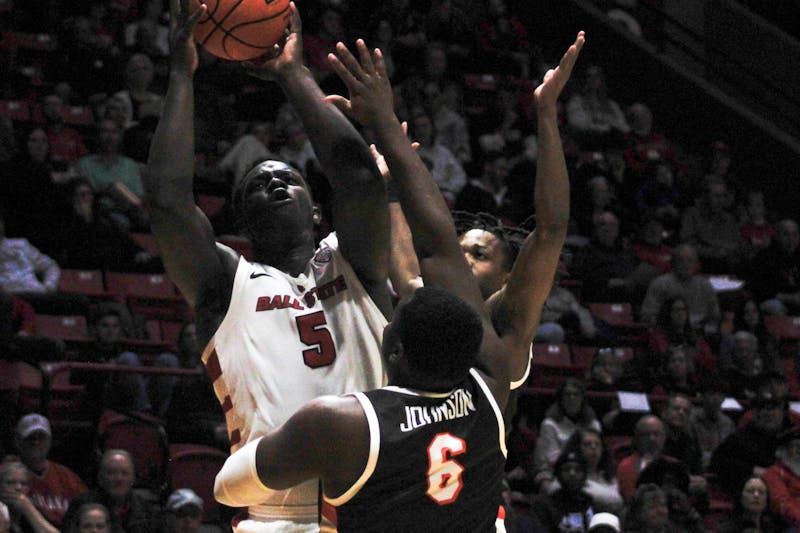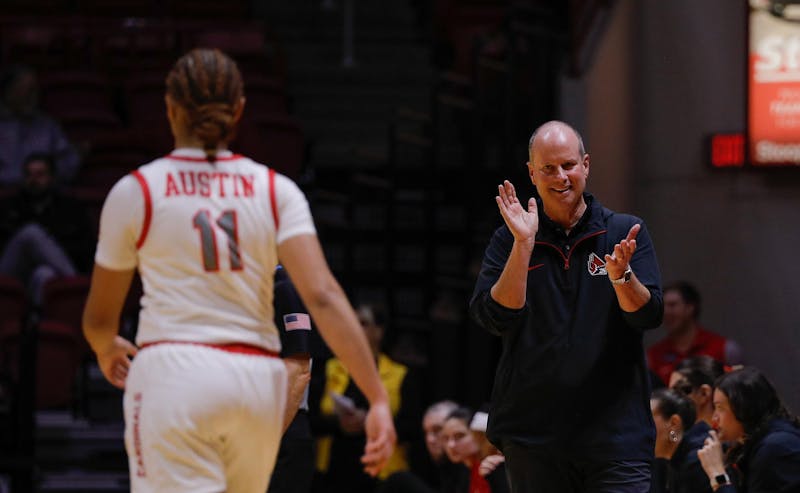Richard Kann is a fourth-year journalism and telecommunications major and writes “Yankee Fist” for The Daily News. His views do not necessarily reflect those of the newspaper.
Growing up, college was sold to me and my classmates as a necessary path on the long road of life, and why wouldn’t it be?
Many stable and reliable jobs require a degree from a four-year-university at minimum, according to Georgetown University’s Center on Education and the Workforce. Naturally, enrolling in college seems like the most logical step for many students graduating from high school that wish to live a comfortable and successful life.
Curiously, some in my generation have come to disagree with this mindset, despite the marketing for higher education we were subjected to for 12 years of education. I am not going to disagree with encouraging students to get a college education; however, I believe the notion that college is a must-have for all students is a mistaken point of view.
In October 2021, Ball State’s Board of Trustees discussed the concerning topic of decreased freshman enrollment in a meeting. This educational recession was attributed to a five-year trend in Indiana. However, this is a part of a far bigger trend. Last year, the National Clearing House released a study showing that two-year and four-year universities accumulated up to 1.5 million fewer students, 71 percent of those students being male.
Some may ask: why would younger generations of men abandon the chance to receive the gift of a higher education, something that very few throughout history have been able to take advantage of?
I think the problem with answering that question is rooted in the question itself. It makes the assumption that the problem lies in men who no longer wish to pursue higher education. However, in order to understand why men are no longer enrolling into college, we have to look at other factors, including our very own universities.
This is where I believe the problem lies.
These many men choosing not to enroll in college are not making these decisions simply out of laziness or out of spite for school. I believe they’re making fully conscious and well-informed decisions.
When I was in high school, I was surrounded by millennials who commonly joked about one thing: college debt. In fact, my senior year, when I got one of my first jobs as a fast food worker at Chick-fil-A, a good few of my co-workers were fully grown millennial adults who graduated from four-year colleges and were now working a second job as a fast food worker to help pay off their college debt. Data from the Education Data Initiative shows that, on average, 63 percent of bachelor’s degree holders owe up to $31,000 in debt, and those with a master’s degree owe up to $70,000 in debt.
Although I joked with my co-workers about this topic, it left me greatly disturbed and hesitant to pursue a college education. I mean, what's the point in attending a university if the “stable” and “reliable” job I get as a direct result of my education can’t even solely support me upon graduation?
I would soon learn my career choice in public relations would require me to attend a four-year university or simply choose a different career. So, desperate to stop myself from being dragged into an abysmal hole of debt, I halted my enrollment to a university and instead enrolled into a two-year transfer college as both a cheaper alternative, and so I could qualify for more scholarships at a four-year university.
This is just the path I chose. Meanwhile, many of my male friends and co-workers back home have chosen instead to enter the workforce early and work up into leadership positions to leverage their experience for a better job, apply to a trade school or even start their own business.
Although we took different paths, the reason I went to so many lengths to avoid debt, and they chose to avoid college, were ultimately the same.
Independence.
To clarify, the desire for independence is absolutely not exclusive to men. However, data is showing men and women are taking different routes to achieve independence, and for many men, the route they’re taking does not involve college.
For example, take a look at one of the most popular alternatives: trade school.
It was reported by research group, The Best School, in a 2021 article that trade school enrollment had nearly doubled between 1999 and 2014. Why is this significant? If you look at Ball State, the male to female ratio of students is 40 to 60 percent. This ratio is pretty consistent with other universities, as women are more likely to enroll in a four-year college than men now.
In The American Trade School, however, the ratio of male to female is 97 to 3 percent. Male enrollment in universities is decreasing, while male enrollment into trade school is doubling.
On top of this, a post-COVID-19 survey from BigRentz.com found that 33 percent of Americans see trade school as a superior option to a university, and 58 percent of Americans view trade school as an equally-good opportunity to a university.Those surveyed noted a lot of reasons for choosing trade school over college such as less debt, a better chance at finding a job, job security, higher paying jobs, etc.
Many men are not forsaking a higher education but instead consciously choosing to pursue a different kind of education they believe will give them financial independence through a good job but won’t cripple them with debt.
Trade school isn’t the only alternative. Amidst the pandemic, there has been a massive trend in entrepreneurship, with data from the Census Bureau showing there has been a massive increase in start up businesses over the course of the pandemic. It's estimated that 54 percent of Gen-Z wish to delay or skip college in favor of becoming entrepreneurs and starting their own business, according to an article from Forbes.
And why wouldn’t they? Entrepreneurship can mean starting their own restaurant, building a wooden furniture shop or by having a simple gaming channel on YouTube.
All of these are very different types of entrepreneurship, but I believe they have one thing in common: you are in charge.
No one can tell you how to cook an omelet, build a chair or play Minecraft if you’re the one in charge. Many people want to be in control. I want that and some others might too. And from the looks of it, men in my generation are using entrepreneurship to do this.
Although, it’s understandable why educational institutions would find this to be concerning. This, in all honesty, is a good thing and should not be addressed by fear for the next generation but with encouragement and even support. Many men are choosing to pursue their interests to better themselves and their communities through a variety of different career paths.
They are choosing to express themselves and explore their own identity by succeeding and failing on their own terms while achieving independence.
Contact Richard Kann with comments at richard.kann@bsu.edu.





The Daily News welcomes thoughtful discussion on all of our stories, but please keep comments civil and on-topic. Read our full guidelines here.